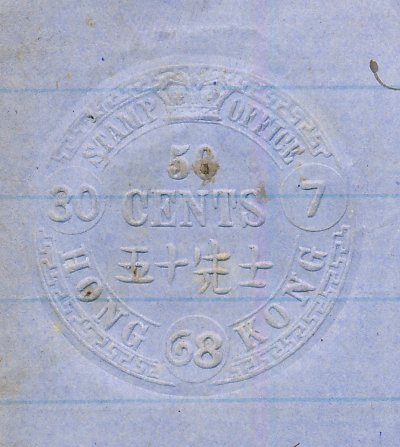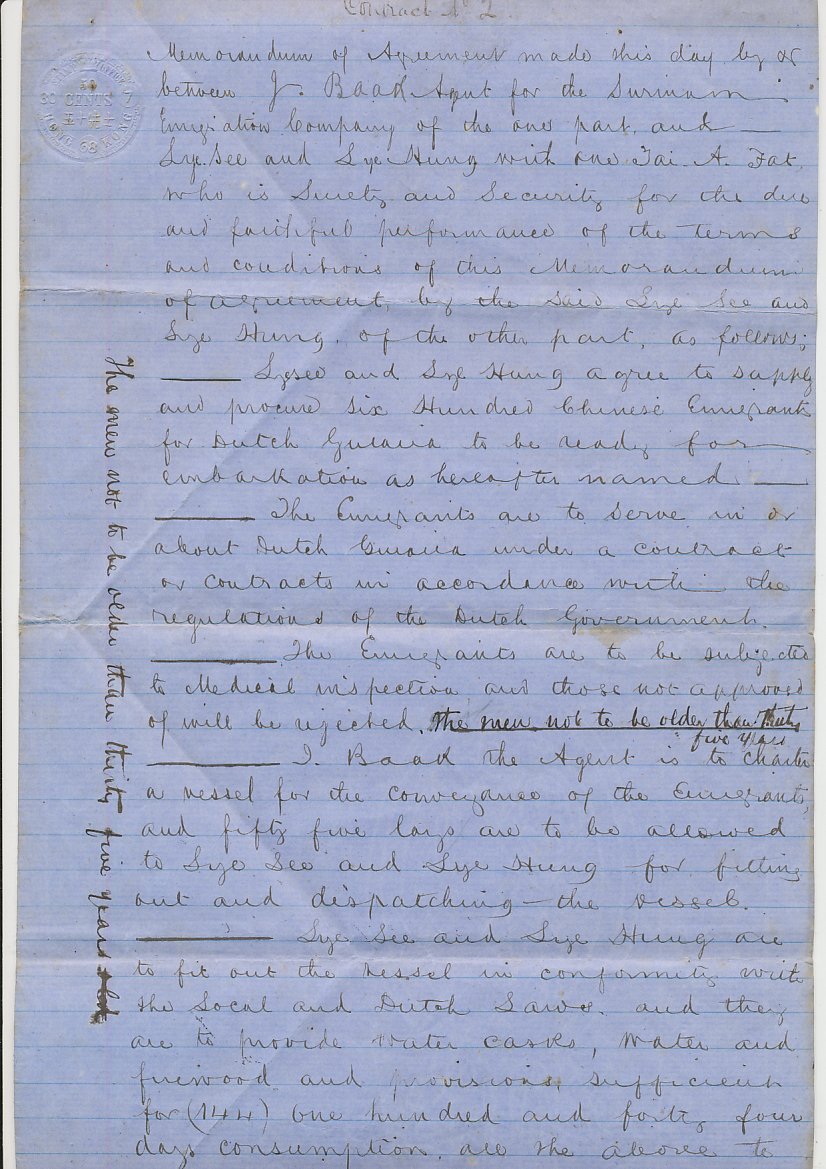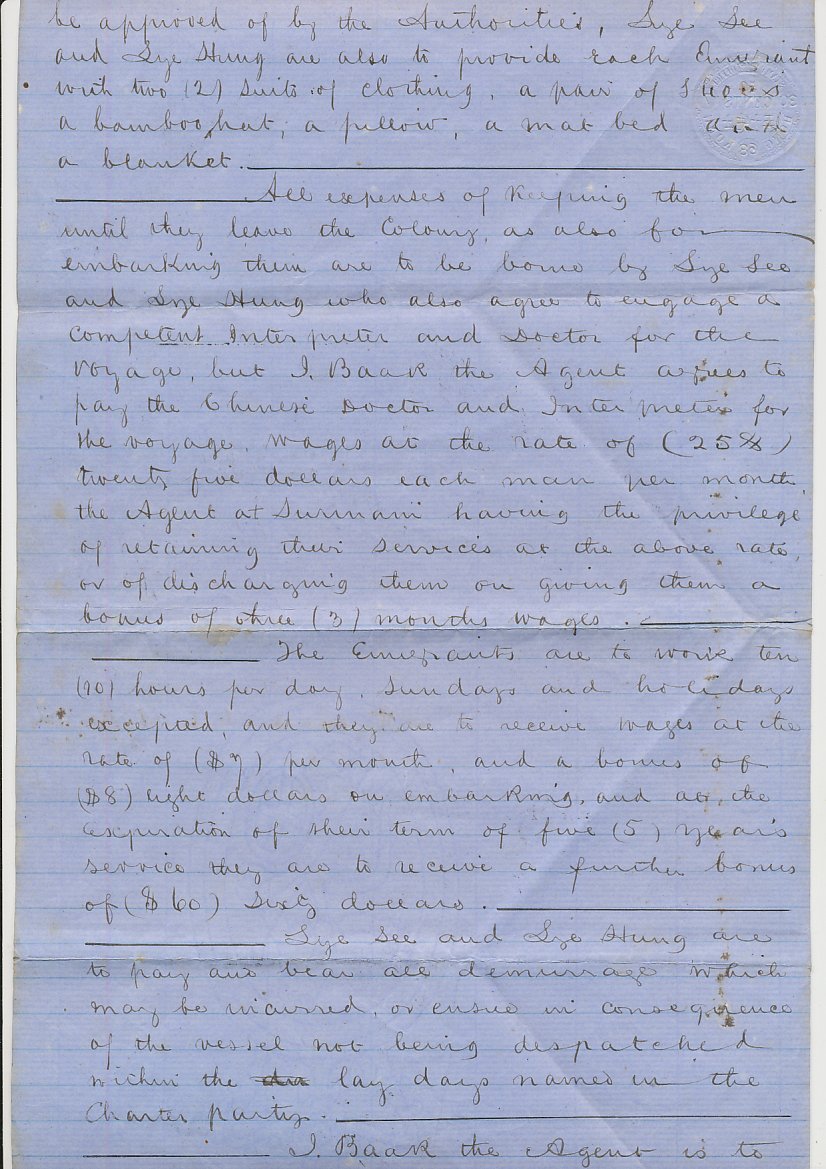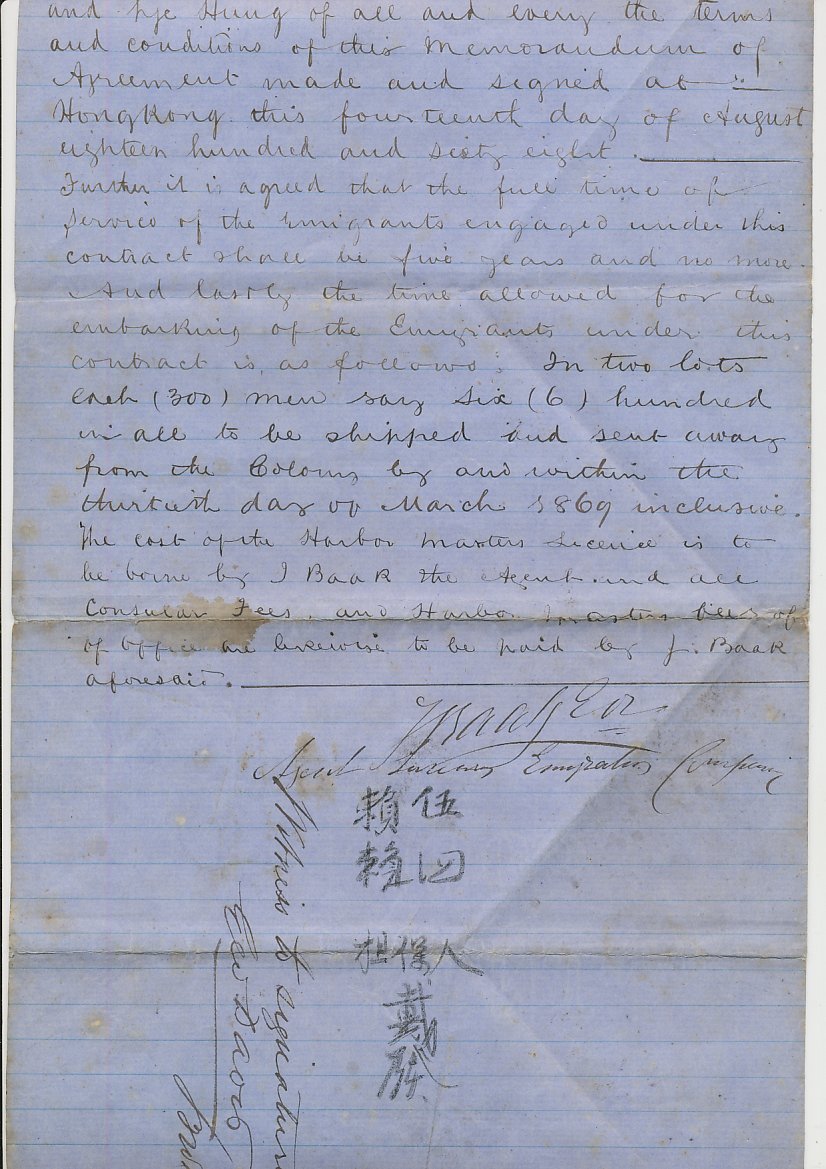Agreement Contract Workers China 1868 - Hong Kong - Suriname
Item number: TC22702
UNIQUE HISTORICALLY DOCUMENT ( 4 pages - Pages did not fit completely under the scanner due to the size ) - CONTRACT / MEMORANDUM OF AGREEMENT 14TH AUGUST 1868 TO SUPPLY AND PROCURE 600 CHINESE EMIGRANTS FOR DUTCH GUIANA ( SURINAME )
REVENUE: STAMP OFFICE 30 7 68 - 50 CENTS
In 1853, planters in Suriname feared a labor shortage when slavery was about to be abolished. They asked the government to recruit other workers from abroad.
The government of Java recruited a group of 18 Chinese for contract labor in the Catharina Sophia plantation in Saramacca. Because of the high acquisition costs, it was decided to get a second group, not from Java, but from China instead. In 1858, 500 Chinese laborers were recruited by the Dutch consul in Macau. They arrived in Suriname in April, but it turned out that no one wanted to hire people to do work that slaves would do for free.
Because of this, the contract with the Chinese was changed without their knowledge by Governer Charles Pierre Schimpf, in favor of the employers. The Chinese could now be treated like slaves. When they would revolt against this, they were, without due process and contrary to existing regulations, punished by police with cane strokes, an unlawful act that was repeated again and again.
An interpellation (formal request for information) to the Minister of Colonies Jan Jacob Rochussen did not help.
In the 1850s and 1860s, about 2,500 Chinese people went to Suriname. Most were employed as contract laborers on the plantations. After their contracts expired, many found opportunities in trade, mostly in food retail. Most of the male laborers were married to non-Chinese women. Those who married Chinese women, mostly married with an imported bride.
See the book : General History of the Caribbean: The long nineteenth century page 225




